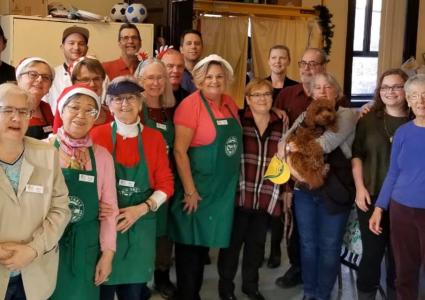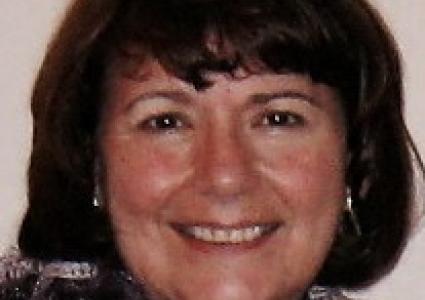Bob Cox recently wrote an editorial in the Winnipeg Free Press stating: “A lot of Manitobans are hitting the wall. We’re grumpy, fed up with our physically distanced, socially isolated lives.”
We see evidence of this with the people using Oak Table’s services too. Some are frustrated with us, saying out of all the places they go, Oak Table is the only place observing such strict protocols. Joe, a guest experiencing homelessness said he doesn't understand why we are physical distancing at Oak Table because every other place he goes he is in shoulder to shoulder contact with others. We only need to glance at the closest bench, piece of grass, bus shelter or encampment In Osborne Village to know this to be true. This same guest gave us an important perspective. He said when he approaches one of our staff or volunteers and they move away, he feels like he isn't seen, or important. He knew we could not change the protocols, but simply wanted to be heard and understood. We needed to take the time listen to his perspective, sharing with him we find it hard as well. Our typical focus in on relationship, connecting and engaging with guests, making them feel welcome and accepted. Our staff and volunteers continue to try and do this, but it is hard for our guests to see the smile on people's faces when it is covered by a mask.
At the 10 week mark we can see the exhaustion in our guest's eyes. Exhaustion caused by worry, by too much time to think, and not enough to distract them from the amount of attention this virus seems to require. Worry that results in sleeplessness and agitation, and yes, sometimes grumpiness. The most common question we hear is : “When will this be over?” A genuine, sincere hope for normalcy to return.
I’m not certain the normalcy some guests want to see return, ever will. I’m thinking of one of our guests living with Asperger's, who loves coming to Oak Table for hugs, art, computers and conversation. He typically stands inside others personal space to have a conversation, where at times, spittle is involved. We know that hugs outside family bubbles may not return for sometime, and physical distancing may well remain the norm even if the curve continues to flatten. Since he does not need a take-out-lunch, we have not seen him for 10 weeks. He has no family in the province, and negligible social outlets other than Oak Table. Ten weeks is enough time away from the computer brain games he uses each day, to result in him losing the accomplishments he worked so hard to gain. This frustration can lead to self-punishment, which when supported, he can overcome. He calls regularly to see if we are "back to normal yet. We expect he will find it difficult to adapt to the new normal, and will require support to change what he counts on as part of his routine.
In chatting with guests over the past week I see their weariness. Another guest, I'll call Joanne, lives in low income housing and like many, hasn’t seen her grand-kids since the first week in March. She has tried hard to handle this time of social isolation on her own. The other day she came in for a visit, saying she could not stay home one more day. She has read books, Googled "how to videos", and as a result taught herself to knit. That worked for awhile, and helped pass the time but it couldn't replace the human interaction she needs. She says she needs an Oak Table volunteer to help her finish her project.
Marcy, another guest who comes for the take out meal, is obviously not doing well. She doesn't look up to meet anyone's eyes as she goes through the line. Her affect is flat. She lives with depression, and with and no access to others by phone or computer. As a result she has turned inwards.
I think about Frances who frequently told us there were many days she didn't want to come, but made herself, and at the end of the day would tell us how glad she was she came, because she always feels better. After 10 weeks, will Frances be able to "make" herself come back, or will it be easier to fall into that dark pit of despair, always beckoning?



